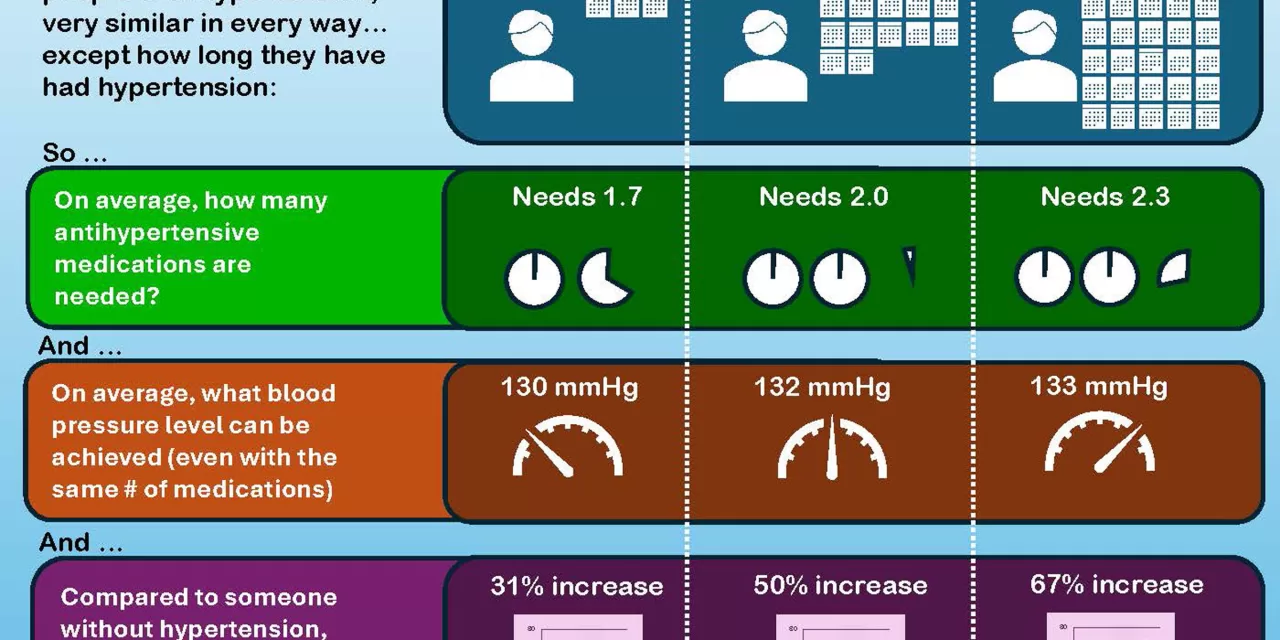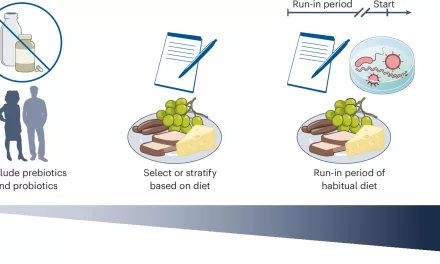A new study published in the American Heart Association journal Stroke on Monday reveals that the longer a person lives with high blood pressure, the greater their risk of having a stroke, even if the condition is treated. The research underscores the importance of preventing high blood pressure from developing in the first place, rather than solely focusing on treatment after it occurs.
The study, which followed 27,310 U.S. adults with an average age of 65 for a median of 12.4 years, found that as the years of living with high blood pressure (hypertension) accumulated, the risk for stroke and the need for multiple blood pressure-lowering medications increased. Even after adjusting for factors like medication use, the risk of stroke grew with the duration of hypertension.
Dr. George Howard, the study’s lead author and an emeritus distinguished professor of biostatistics at the University of Alabama at Birmingham, emphasized that while treating high blood pressure is crucial, efforts to prevent the condition from developing in the first place are just as vital.
“Preventing high blood pressure is key,” Dr. Howard said. “So much of the focus has been on treating it, but we must refocus on preventing it from ever developing.”
High blood pressure, which occurs when the force of blood against the walls of the blood vessels is too strong, is a leading cause of heart attacks and strokes. Nearly half of U.S. adults suffer from hypertension, but many are unaware due to the condition’s lack of obvious symptoms. Blood pressure is considered high when the systolic (top) number reaches 130 mmHg or higher, or the diastolic (bottom) number reaches 80 mmHg or higher.
The study found that people with hypertension for up to five years were 31% more likely to have a stroke compared to those with normal blood pressure. This risk increased to 50% for individuals who had hypertension for six to 20 years and jumped to 67% for those who had lived with the condition for over two decades.
One of the most concerning findings was the need for escalating medication. Participants who had hypertension for 21 years or more required an average of 2.28 classes of blood pressure medications, compared to 1.68 classes for those who had hypertension for five years or less.
Dr. Shawna Nesbitt, medical director of Parkland Health’s Hypertension Clinic, stressed the significance of early intervention. “The duration of exposure to high blood pressure is what causes the damage,” she said. “Identifying and managing high blood pressure before it becomes chronic can significantly reduce stroke risk.”
Beyond health implications, preventing strokes can ease the societal costs of such events. “The cost of a stroke is incredibly high,” Dr. Nesbitt noted. “It can cause lifelong disability and impact a person’s ability to work, leading to long-term care that affects not just the patient but their families as well.”
To help maintain healthy blood pressure, the American Heart Association (AHA) recommends regular exercise, a balanced diet, weight management, stress reduction, limiting alcohol consumption, avoiding smoking, and adhering to prescribed medications if necessary.
The findings of this study emphasize the critical need for ongoing efforts to manage and prevent hypertension, which could have far-reaching benefits in reducing the burden of stroke and its long-term consequences.
For more information on the study, visit Stroke (2024), DOI: 10.1161/STROKEAHA.124.048385.












